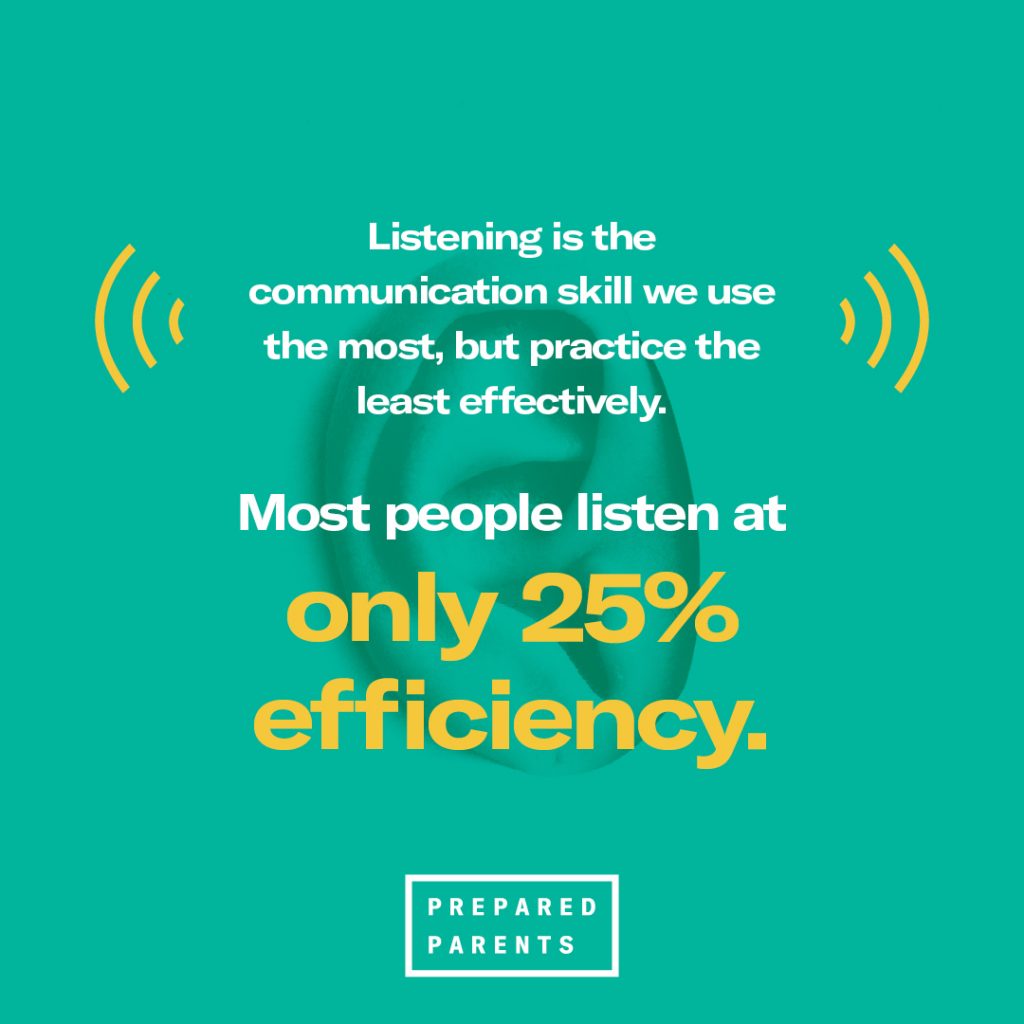Listening is one of the most important skills we will use in our lifetimes, but we spend almost no time learning how to do it well. So listen up! It’s not too late to become a better listener and help your kid build these important skills too.
Did you know there’s a legend of listening? Dr. Ralph Nichols is considered the father of the field. Early in his career, Dr. Nichols was a high school speech teacher and debate coach who recognized that his students’ persuasive skills depended heavily on their ability to listen. He ultimately devoted forty years to the study of listening as a professor at the University of Minnesota and was one of the first inductees to the Listening Hall of Fame.
“The most basic of all human needs is the need to understand and be understood and the best way to understand people is to listen to them.”
—Dr. Ralph Nichols
As a pioneer in the field, Dr. Nichols lamented that not enough teachers pay attention to developing the skill of listening in their students.
Steven A. Beebe, Ph.D., Regents’ Professor and University Distinguished Professor Emeritus, Texas State University, says, “Listening is vital to student success—both as learners as well as learning how to be good citizens. Listening is often taught indirectly through modeling and informal study; but good listeners are essential at every grade level.”

According to Dr. Nichols’s research, listening is the communication skill we use the most, but practice the least effectively. Most people listen at only 25% efficiency.
For employees in white collar jobs who devote at least 40% of their workday to listening, they’re missing a significant chunk of information unless they learn how to listen actively.
Here’s what happens inside our heads as we listen: the average rate of speech for most Americans is 125 words per minute. That’s pretty slow for our high-capacity brains and leaves a lot of room for other activities like thinking. We’re so easily distracted! We have to be trained on how to listen.
Use these three strategies to practice and improve your listening skills:
Anticipate and evaluate
Instead of daydreaming, use that lag time to anticipate and evaluate. Where is the speaker going in their discourse? What conclusions will they—or you—draw?
Consider the evidence they present. Is it valid? ThinkCERCA founder Eileen Murphy Buckley says, “The most important thing a listener can do is be an inquisitive audience. Ask why, what do you mean by that, can you explain that to me? This helps a speaker more fully develop their thinking on a topic.”
Take a moment to review what you’ve heard so far and mentally summarize the key points. Look for hidden messages in the speaker’s facial expressions, gestures, and tone of voice. What meaning do these add to their words?
Read to listen
Research shows that some of the skills achieved through reading apply to listening. They’re both receptive skills—they take in information. But there are differences in the way the information is processed. Readers often remember more details because they have a text they can refer back to. Listeners have an overall understanding of ideas expressed, but may not remember the details as clearly.
Take a listener’s stance
The key to being a good listener is to be an effective conversational partner. A 2011 study says that’s primarily associated with verbal social skills and includes a full immersion of all our senses. When you’re an audience, take a listener’s stance: “Understand and empathize with the speaker. It’s an important skill in life.”
Julian Treasure, another authority on listening uses the acronym RASA to explain how to stand and listen.
- Receive—Pay attention to the person.
- Appreciate—Make little noises like “hmm,” “oh,” “OK.”
- Summarize—The word “so” is very important in communication.
- Ask—Ask questions afterward
Developing the skill of listening is helpful not just for our kids, but for ourselves. We all need to get into the listener’s stance and pay attention to what we hear. It influences our relationships with others and creates a feeling of respect and a sense of belonging. Dr. Beebe adds, “A good listener seeks not only to understand the message of others, but to also be sensitive to opportunities to grow, change, and adapt.”


